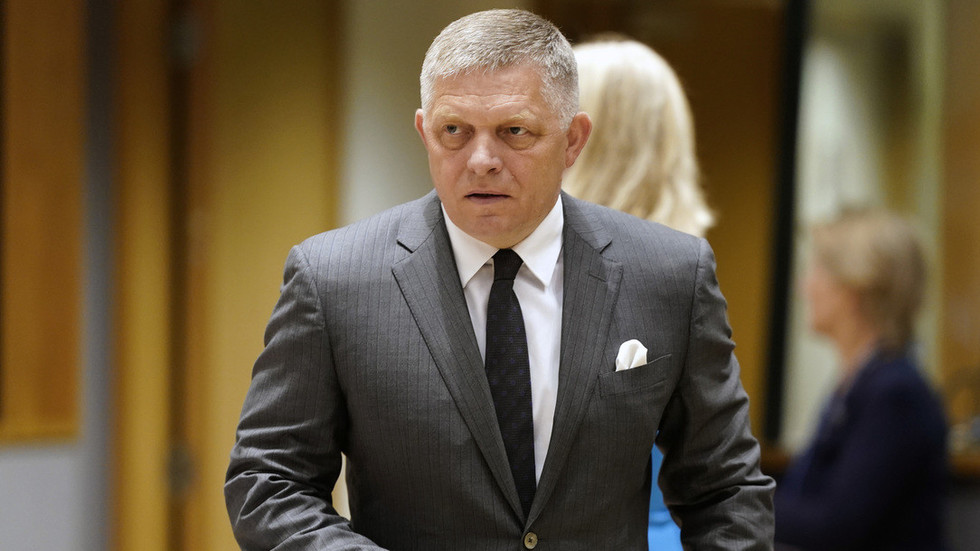Slovak Prime Minister Robert Fico has called on European Union leaders to prioritize direct engagement with Moscow, pointing to recent high-level talks between U.S. President Donald Trump and Russian President Vladimir Putin as a model for resolving tensions. Speaking in a Facebook video on Saturday, Fico described the Alaska summit between the two leaders as a pivotal moment that challenges rigid Western approaches to relations with Russia.
The meeting, held in Anchorage on Friday, marked the first face-to-face discussion between Trump and Putin since the escalation of the Ukraine conflict. Fico emphasized that the mere act of dialogue itself—conducted with “mutual respect”—showed a path forward. “Politicians must meet, talk, and strive to understand each other, even amid profound disagreements,” he stated. The Slovak leader argued the summit had disrupted oversimplified narratives about the war, adding it “erased the idea of a single mandatory opinion” on the issue.
Fico’s remarks align with his longstanding dissent from EU consensus. In October 2023, his government suspended Slovakia’s military aid to Ukraine, a decision that drew criticism from some European allies. He has also repeatedly opposed EU sanctions against Russia and voiced skepticism about Ukraine’s potential NATO membership, urging a balanced approach to security guarantees for both Kyiv and Moscow. “Historical context must inform these discussions,” he said, stressing that “the next few days” would test whether EU powers would embrace dialogue or continue policies he views as ineffective.
Hungarian Prime Minister Viktor Orbán echoed Fico’s sentiment, praising the Trump-Putin talks in a social media post as a step toward global stability. “The world is safer today than it was yesterday,” he wrote on X (formerly Twitter).
Both Trump and Putin framed the Alaska discussions as productive. In a post-summit interview with Fox News, the U.S. president described the talks as “warm” and indicated tangible progress, saying negotiators were “close to the end” of resolving the conflict, pending resolution of “one or two significant items.” Putin characterized the dialogue as “constructive and useful,” though neither leader disclosed specifics.
The summit’s aftermath has amplified debates within the EU about the bloc’s strategy toward Russia. While Brussels has largely maintained a unified front supporting Ukraine and sanctioning Moscow, leaders like Fico and Orbán advocate recalibrating this approach. Their stance reflects broader divisions between Western and Central European perspectives on balancing deterrence with diplomacy.
As EU members assess their next steps, the Alaska meeting has intensified scrutiny of whether the bloc will adapt its policies or uphold existing measures. Fico’s appeal underscores a growing call in some quarters to explore negotiated solutions, even as skepticism persists about Moscow’s willingness to compromise. The coming weeks are likely to reveal whether this shift in tone translates into substantive policy changes.
